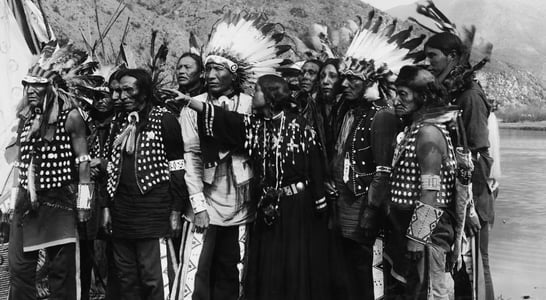
T. S. Eliot's birthday
T. S. Eliot, born on September 26, 1888, was an influential poet and playwright. His work changed how many people viewed poetry.
Eliot grew up in the United States but later made England his home. He wrote famous poems like “The Waste Land” and earned the Nobel Prize in Literature. Eliot’s style was unique, blending modern ideas with traditional forms. His writings continue to inspire readers and writers worldwide.
Early Years of T. S. Eliot
T. S. Eliot’s journey began in St. Louis, Missouri. He was the last of seven children in a well-to-do family. Eliot showed a love for words early on. He wrote his first poem at the age of eight. His family valued education and creativity, which shaped his early years.
Eliot attended Smith Academy in St. Louis. Here, he discovered his passion for literature. He read widely, absorbing works from various authors.
This reading helped form his unique style later in life. After Smith Academy, he went to Milton Academy in Massachusetts. This school further honed his writing skills.
In 1906, Eliot began his studies at Harvard University. He studied philosophy, which influenced his poetic ideas. At Harvard, Eliot’s talent for writing grew stronger. He started exploring different literary forms. These years at Harvard laid the foundation for his future as a groundbreaking writer.
Triumphs of T. S. Eliot
T. S. Eliot’s career was marked by remarkable achievements. His poem “The Love Song of J. Alfred Prufrock” first gained attention in 1915. This work broke new ground in poetry. It showed his unique voice and modern style. Eliot’s fame grew with each new publication.
In 1922, he released “The Waste Land”. This poem became a landmark in modern literature. It reflected the post-World War I era’s confusion and despair. Critics and readers alike praised Eliot for this powerful work. It cemented his status as a leading poet of his time.
Eliot’s success wasn’t limited to poetry. He also excelled in playwriting. His play “Murder in the Cathedral” from 1935 received wide acclaim. It showcased his ability to blend poetic language with dramatic storytelling.
In 1948, Eliot received the Nobel Prize in Literature. This was a crowning achievement in his career. The Nobel Committee recognized his profound impact on 20th-century poetry. Eliot continued writing and influencing literature until he died in 1965. His legacy lives on, inspiring new generations of poets and writers.
Interesting Facts About T. S. Eliot
Polyglot Poet: T. S. Eliot was fluent in several languages, including French, German, and Italian. He often incorporated elements from these languages into his poetry.
Banker Turned Poet: Before fully dedicating himself to writing, Eliot worked in a bank. This experience gave him a unique perspective on modern life, which he reflected in his works.
Editorial Influence: Eliot was an influential editor at the literary magazine “The Criterion.” He used this platform to promote new writers and ideas in literature.
Harvard’s Scholarship: Eliot was awarded a scholarship to study at the Sorbonne in Paris, further broadening his literary horizons.
Renounced U.S. Citizenship: In 1927, Eliot officially became a British citizen and even joined the Church of England, embracing his adopted country’s culture.
A Passion for Cats: Eliot loved cats and famously wrote a book of whimsical poems about felines, “Old Possum’s Book of Practical Cats.” This book inspired the musical “Cats“.
A Pioneering Critic: Eliot was also an influential literary critic. His essays helped redefine how poetry and drama were understood and evaluated in the 20th century.
Also on this date...
German Butterbrot Day
Start your day off right on German Butterbrot Day with a simple piece of toast and your favorite high-quality butter. That’s it!
Native American Day
Learn about the rich cultures of Native American tribes in your area. Support modern tribes by educating others, buying goods, and participating in events.
Save the Koala Day
Koalas, one of Australia's most beloved animals, are facing a threat to their survival due to habitat loss, bushfires, and disease.




